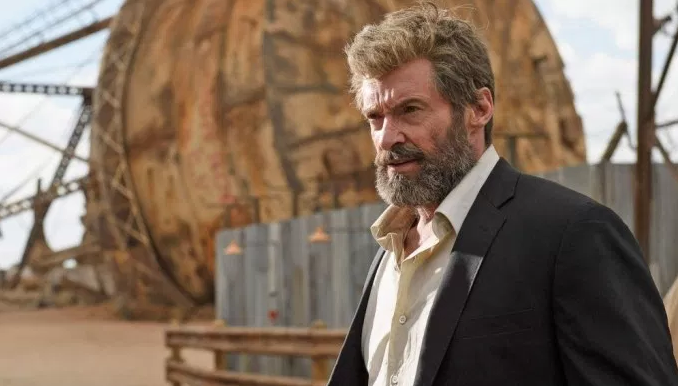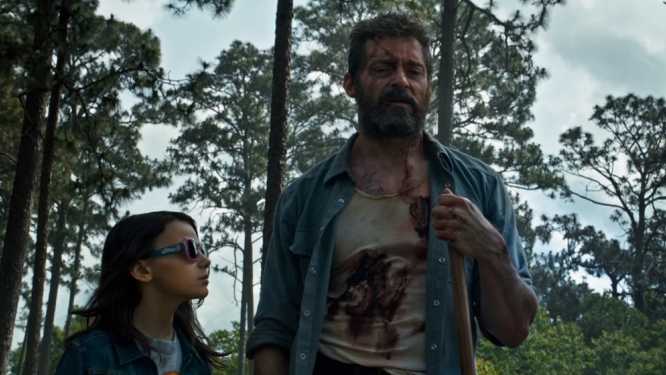James Mangold’s Logan does something very clever and pulls it off so well that its cleverness may go unnoticed. The film is set in the year 2029, many years after the events of any other X-Men film to date and real X-Men comic books are acknowledged within the narrative of Mangold’s film. Logan himself (Hugh Jackman), dismisses their content as contrived. “Maybe a quarter of it happened,” he scoffs, “and not like this.”
The comics serve a more significant purpose than fan service and Logan brushing them off deftly allows Mangold’s film to exist without the burden of having to observe established plot. But the presence of the comic books also confirms that the X-Men did exist, in the form that we have been privy to or not, which means that our understanding of Logan as a character may remain and that his history is ambiguous, not void. That understanding and that history are crucial to the success of Logan.

Logan aka the Wolverine, is old. It’s been years since his exploits with the X-Men. His healing powers are fading, for reasons that become clear over the course of the film. Trying to maintain a low profile, Logan cares for a dementing Charles Xavier (Patrick Stewart) with the help of fellow mutant, Caliban (Stephen Merchant), and works as a limousine driver, trying to scrape together enough money to get them away from their dire circumstances. Mutants aren’t the universal presence that they once were, and all of Logan’s old friends are dead or missing. Then a young girl called Laura, (Dafne Keen) enters Logan’s life and forces the Wolverine to confront aspects of his character both good and terrible.
There are many good moments in Logan and a few great ones. It’s the the culmination of a film series in which it is the only outstanding entry. It’s a drastic departure from the X-Men film franchise, stylistically and tonally, but it recognises the previous films just enough for them to be a benefit. For much of the running time, Logan is outstanding. Until the final twenty minutes, it is almost flawless. It is one of the very best films to be based on a comic book ever made.
Mangold also directed The Wolverine, which was released in 2013. There were many merits to that film and many shortcomings. The only shortcoming from that film that lingers in this one is the lacklustre finale. One significant element that Mangold uses to his advantage in both films is Logan’s vulnerability. The character is a self-healing mutant whose bones are lined with indestructible metal. That renders most danger redundant. Mangold’s Wolverine is susceptible, and the manner in which Logan makes The Wolvering vulnerable is simple and effective.

Mangold is also wise in how he conveys and withholds information. The world around these characters is ambiguous, but Mangold presents us with enough information for us to come to our own conclusions. It’s never entirely clear why or how most of the mutants were wiped out, because it’s not relevant to Logan as a character, which is the fundamental and sole focus of the film. Almost every element of Logan feels consciously included to augment the main character. If Hugh Jackman revisits the role after this film, he’d be making the wrong decision.
With the saturation of comic books movies in Hollywood, Logan was an inevitability; not a reappraisal of the comic book genre but a complete gutting of it, and maybe just at the right time. Bryan Singer’s X-Men heralded in an era of unprecedented success for comic book adaptations, one consequence of which is that Hollywood has been irrevocably altered. Logan may be the beginning of something new.